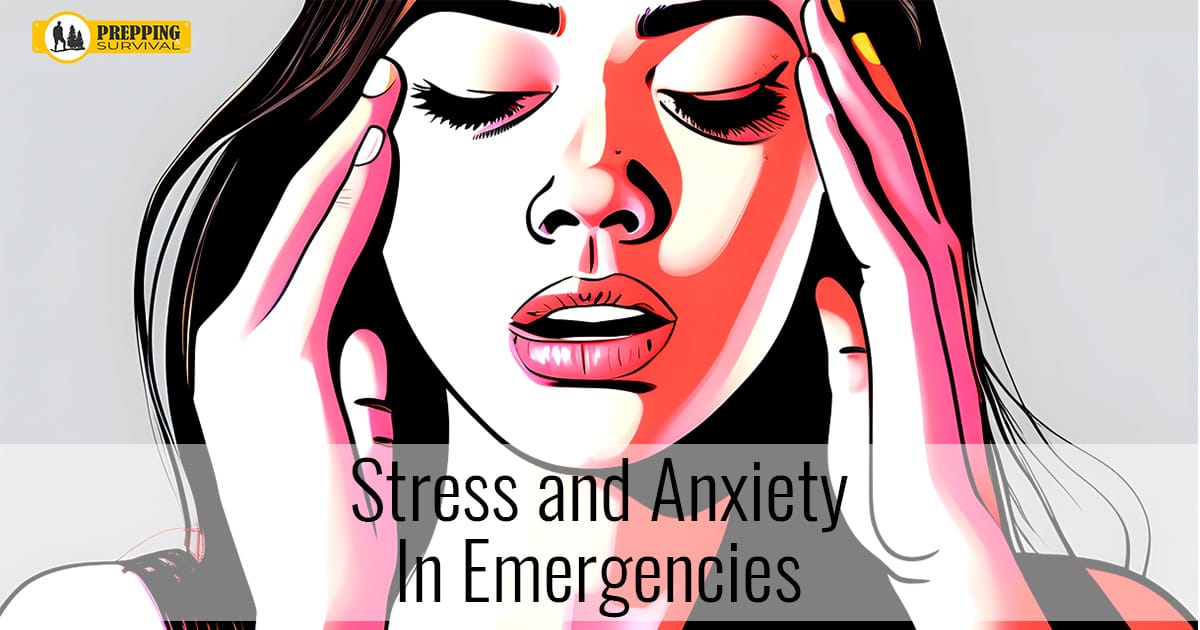Cyber threats aren’t just “out there” anymore—they’re part of everyday life. From fake emails trying to trick you into clicking a link, to criminals locking up a company’s files for ransom, the dangers are real and constant.

Approx reading time: 3 minutes

Stress and anxiety during crises are like unwelcome guests that show up uninvited and refuse to leave. Their impact is impossible to ignore. They not only throw a wrench in our immediate survival plans but also threaten to chip away at our resilience over time. Crises, by their nature, let loose a Pandora’s box of fears and uncertainties that can send our stress and anxiety levels skyrocketing.
And sure, these reactions are totally human, part of our body’s built-in survival kit. But let’s be real, they can also mess with our ability to think straight, compromise our crisis management skills, and leave psychological scars that last long after the crisis is over. So, it’s just as crucial to keep these emotional gatecrashers in check as it is to know how to start a fire or find clean water.
The first step is to accept that stress and anxiety are our body’s default response to danger. They crank up our fight or flight response, getting us ready to tackle the situation head-on. But the real trick is to harness these reactions without letting them consume us. It’s about spotting the warning signs – a racing heart, fast breathing, restlessness, a mind that’s all over the place – and taking control.

One tried-and-true method is to use good old breathing exercises. Deep, rhythmic breathing can help calm our body’s stress response and clear the cobwebs from our mind, setting the stage for smarter decisions. The 4-7-8 technique is particularly handy – inhale for four seconds, hold your breath for seven, and exhale for eight. And don’t underestimate the power of sticking to a routine as much as you can. It’s like an anchor in a storm, giving you a sense of control amidst all the chaos.
If you’d like to know more about deling with stress and anxiety, take a look here.
Establishing routines like regular meal times, taking breaks, and keeping in touch with your loved ones or fellow survivors can help create a sense of stability in an otherwise unpredictable situation. Moving and shaking that body is also a great idea because exercise helps release endorphins, those feel-good chemicals that act like natural stress-busters. Even simple activities like walking or stretching can do wonders for your mood.
Preparation is also key. Familiarizing yourself with different emergency situations and having a plan of action can make the real deal less intimidating. So, get to know the basics of survival, learn about emergency protocols, and keep an emergency kit handy. Being ready for the worst can give you a confidence boost and take the edge off your fear and anxiety.
Don’t forget the power of people. Sharing your worries and feelings with others can offer a much-needed emotional outlet and strengthen your bonds with them. In a survival scenario, working together, supporting each other, and leveraging everyone’s strengths can lighten everyone’s load and collective anxiety. Techniques like mindfulness and grounding can also help.
These techniques help you focus on the here and now, reducing the urge to obsess over past mistakes or future uncertainties. Simple things like paying attention to physical sensations – the feel of the ground under your feet or the sound of your breathing – can help cool down your mind.
And last but not least, remember that it’s okay to feel stressed and anxious. It’s normal, especially when you’re dealing with extraordinary circumstances. By accepting these feelings without judgment, we can decrease their hold on us. Add some proactive coping strategies to the mix, and you can turn stress and anxiety from towering monsters into manageable speed bumps.
In a nutshell, managing stress and anxiety during emergencies is like juggling with multiple balls. It’s about recognizing the signs of stress and anxiety, finding ways to keep them under control, and getting yourself physically and mentally ready for emergencies. Doing so can boost your ability to handle crises with a cool head, resilience, and strength.